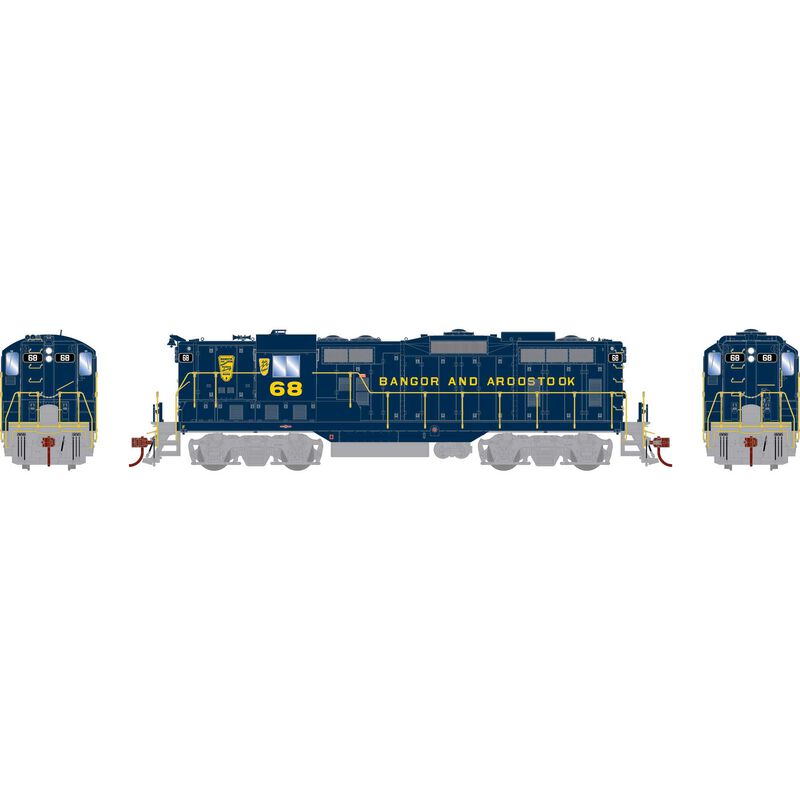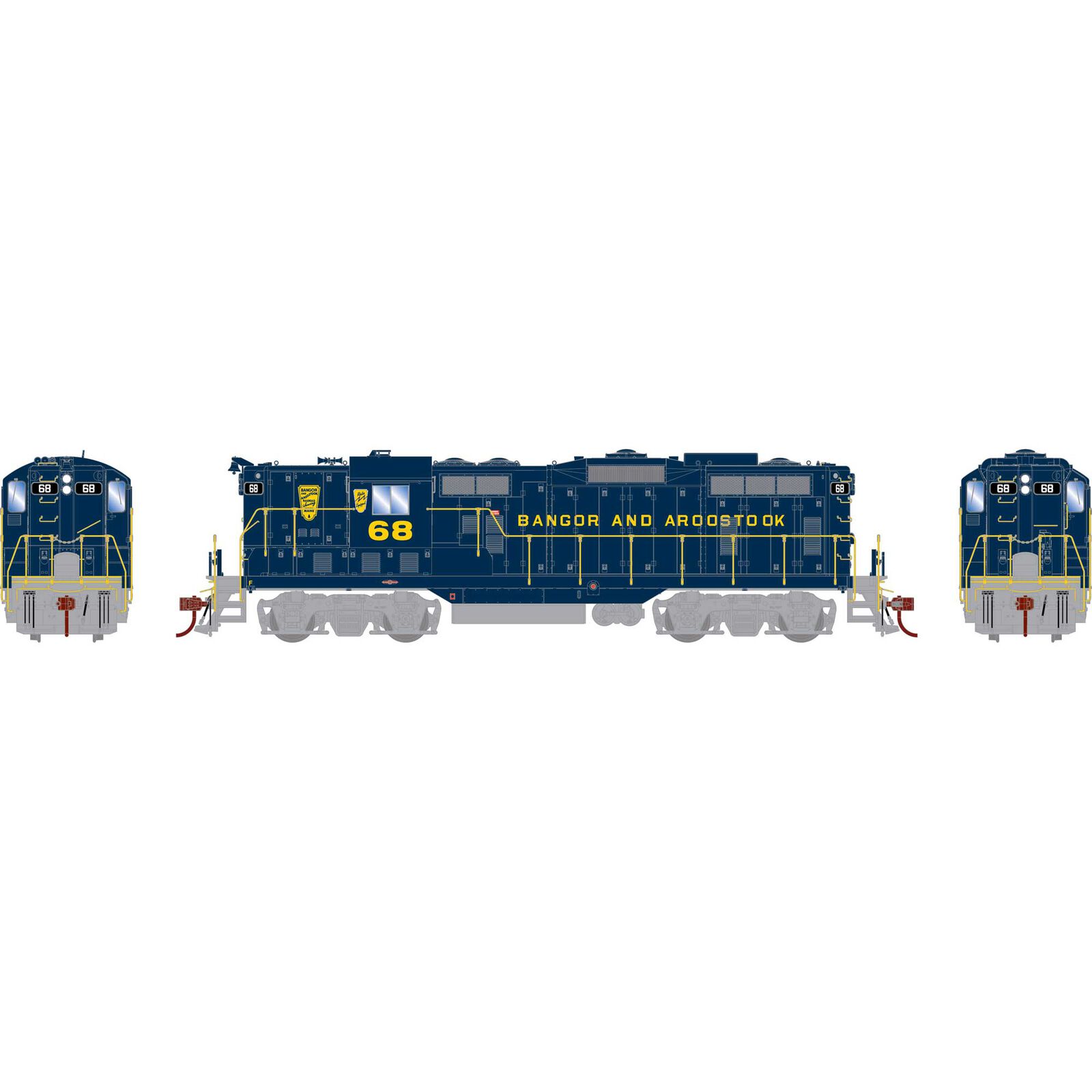HO GP7, BAR #68
BAR FEATURES:
- Winterization hatch
- Bell mounted on short hood
- Sloped pilots with footboards
- Large fuel tanks
- Square MU boxes with pipe bases and dual receptacles
BAR was an early supporter of EMD’s road switcher concept, purchasing 12 GP7s in late 1949 and another 4 in 1952. Starting in the early 1960s, the units were repainted in a simplified solid blue scheme. The former BAR 73 was selected in 1975 to receive a colorful scheme of red, white, and blue to commemorate the nation’s Bicentennial. The unit carried the name Jeremiah O’Brien, a Maine patriot, and a new number, 1776. The BAR GP7s were true travelers, being leased to the PRR starting in 1951 to assist with summer ore traffic, an agreement which lasted through the Penn Central era. They were also leased to the LV and LIRR to assist with power shortages on those roads.
LOCOMOTIVE FEATURES:
- Coupler cut levers
- Trainline and MU hoses
- Drop steps unless noted
- MU stands
- “Nub” style walkway tread
- Windshield wiper
- Lift rings
- Wire grab irons
- Windshield wipers
- Sander lines
- Bell placement & type per prototype
- Detailed fuel tank with fuel fillers, fuel gauges, breather pipes, and retention tanks
- Blomberg-B trucks with appropriate bearing caps
- Speed recorder unless noted
- See-through cab windows and full cab interior
- Fine-scale Celcon handrails for scale appearance
- Etched metal radiator intake grilles and fan grilles
- Air tanks mounted below sill unless noted
- Body-mounted McHenry® scale knuckle couplers - Kadee® compatible
- DCC-ready features Quick Plug™ plug-and-play technology with 21-pin NEM connector
- Scaled from prototype resources including drawings, field measurements, photographs, and more
- Accurately painted and printed paint schemes
- Genesis driveline with 5-pole skew wound motor, precision machined flywheels, and multi-link drivetrain
- All-wheel drive with precision gears for smooth & quiet operation
- All-wheel electrical pickup provides reliable current flow
- Wheels with RP25 contours operate on all popular brands of track
- LED Lighting for realistic appearance
- Heavy die-cast frame for greater traction and more pulling power
- Packaging securely holds the model for safe storage
- Fully-assembled and ready-to-run
- Minimum radius: 18”
- Onboard DCC decoder with SoundTraxx Tsunami2 sound
- Sound units operate in both DC and DCC
- Engine, horn, and bell sounds work in DC
- All functions NMRA compatible in DCC mode
- Precision slow speed control
- Program a multiple unit (MU) lashup with lead unit only horn, bell, and lights
- Many functions can be altered via Configuration Value (CV) changes
SOUND EQUIPPED MODELS ALSO FEATURE
PROTOTYPE SPECIFIC INFORMATION
In 1949, EMD introduced the GP7. The basic design followed most diesel switchers with the addition of a short hood instead of an end-cab. The hoods were also full height to better accommodate the diesel engine and mechanical and electrical components.
In 1954 EMD upgraded the GP7 to become the 1,750 horsepower GP9. Externally, the first GP9s were virtually unchanged from the last GP7s. Later versions would include different louver arrangements and the last ones would come without the frame skirting. The GP9 was available with all of the fuel tank, steam generator, and dynamic brake options as the GP7, including “torpedo tube” air tanks mounted on the roof.
Many railroads chose to rebuild their GP7s and GP9s for continued service. Often times, it was cheaper to do this rather than purchasing brand-new locomotives.

